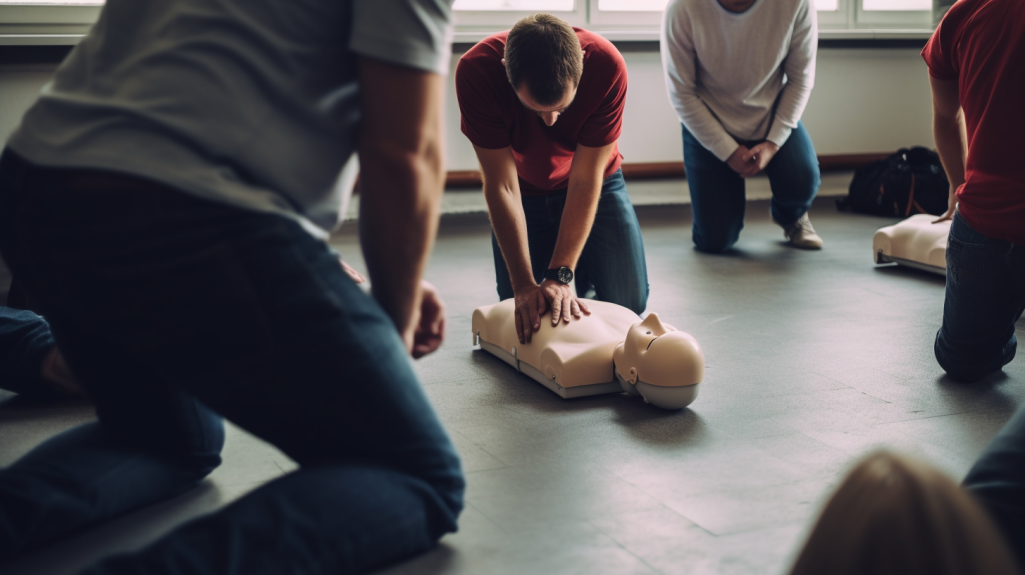Outdoor adventures are a thrilling way to connect with nature, but they also come with their fair share of risks. From hiking in remote wilderness areas to embarking on adrenaline-pumping adventures like rock climbing or white-water rafting, accidents can happen when you least expect them. That’s why every outdoor enthusiast should prioritize learning first aid and CPR (Cardiopulmonary Resuscitation). In this article, we’ll explore the top ways you can acquire these essential life-saving skills to ensure both your safety and that of your fellow adventurers.
Enroll in a Traditional First Aid and CPR Course
One of the most effective and comprehensive ways to learn first aid and CPR is by enrolling in a traditional course offered by organizations like the American Red Cross or the American Heart Association. These courses are typically available at local community centers, colleges, and dedicated training centers.
Advantages:
- Hands-on training: In-person courses provide practical, hands-on experience, which is crucial for building confidence in administering first aid and CPR.
- Expert instructors: You’ll have access to certified instructors who can answer your questions and provide guidance.
- Certification: Successful completion of the course often results in certification that is widely recognized and required in many professional settings.
Online First Aid and CPR Courses
For those with busy schedules or limited access to in-person training, online courses offer a convenient alternative. Many reputable organizations offer online first aid and CPR training, complete with videos, interactive modules, and self-assessment quizzes.
Advantages:
- Flexibility: You can learn at your own pace and at a time that suits you.
- Cost-effective: Online courses are often more affordable than in-person classes.
- Accessibility: You can access course materials from anywhere with an internet connection.
Wilderness First Aid Courses
If your outdoor adventures frequently take you off the beaten path, consider enrolling in a wilderness first aid course. These specialized programs focus on providing first aid in remote and challenging environments, where professional medical help may be hours or even days away.
Advantages:
- Tailored to outdoor scenarios: You’ll learn how to handle injuries and emergencies specific to outdoor activities.
- Advanced skills: Wilderness first aid courses often cover topics like improvised splints, wound care, and hypothermia treatment.
- Increased self-reliance: You’ll gain confidence in managing emergencies in remote locations.
First Aid Apps and Resources
In the digital age, there are numerous first aid and CPR apps and resources available. These can be valuable tools for reinforcing your skills and refreshing your memory on essential procedures.
Advantages:
- Quick reference: Apps and online resources provide immediate access to step-by-step guides and videos.
- Portability: You can carry these resources with you on your outdoor adventures via your smartphone or tablet.
- Interactive learning: Many apps offer interactive simulations to practice CPR and first aid techniques.
Join Outdoor and Survival Groups
Outdoor and survivalist groups often organize workshops and training events focused on wilderness first aid and survival skills. Joining these groups can provide you with hands-on experience and opportunities to learn from experienced outdoor enthusiasts.
Advantages:
- Networking: Connect with like-minded individuals who share your passion for the outdoors.
- Real-world scenarios: Learn in a practical outdoor setting, simulating emergency situations.
- Diverse knowledge: Gain insights from a community with a wide range of outdoor experience.
Conclusion
Learning first aid and CPR is an essential skill for any outdoor enthusiast. Accidents can happen at any time, and being prepared to respond quickly and effectively can make all the difference. Whether you choose traditional courses, online resources, or specialized wilderness first aid training, taking the time to learn these skills will not only enhance your outdoor experience but also ensure your ability to assist others in times of need. Remember, in the great outdoors, knowledge is your most valuable asset.

